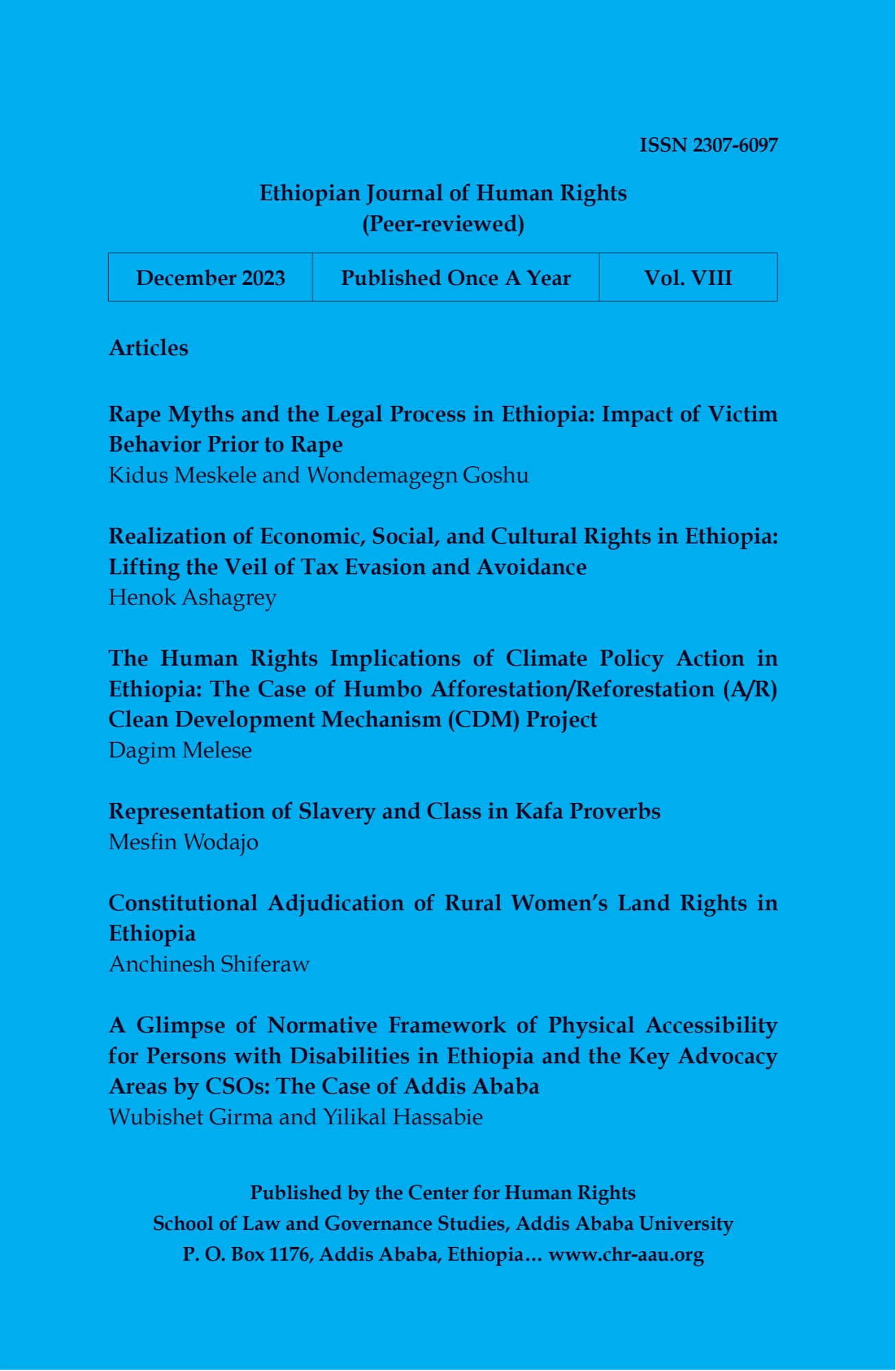Realization of Economic, Social, and Cultural Rights in Ethiopia: Lifting the Veil of Tax Evasion and Avoidance
DOI:
https://doi.org/10.63990/ejhr.v8.12394Abstract
Ethiopia is a party to the International Covenant on Economic, Social and Cultural Rights (ICESCR), which obliges the government to ensure the realization of economic, social and cultural (ESC) rights to the maximum of its available resources. Taxation, which is the most predictable source of government revenue, is a critical part of the state’s compliance with the Covenant’s obligation. Therefore, Member States are required to levy effective types of taxation, while discouraging diversion of resources. Putting in place effective legal frameworks aimed at combating tax avoidance and evasion, is not only an ICESCR compliance step, but also a sine qua non of generating sufficient resources that can be used to improve the socio-economic conditions of citizens, particularly the vulnerable groups. This paper examines Ethiopia’s tax policies and practices, focusing on their effectiveness in tackling tax avoidance and tax evasion practices, through the prism of human rights principles and standards. The findings reveal that despite having robust legislations to address tax abuse practices, and a consistent nominal increase in tax revenue over the past two decades, Ethiopia is experiencing notable losses in potential tax revenue, and the tax-to-GDPratio has been gradually declining, particularly for the last seven consecutive fiscal years. The prevalence of both domestic and international tax abuse practices contributes significantly to this situation. Although comprehensive data on the exact extent of these practices is limited, the paper draws on available information, including the State of Tax Justice reports in 2020 and 2021, to highlight how these abusive practices drain funds that could be invested in education, health, poverty reduction, and other critical areas.
Keywords: taxation, maximum available resources, avoidance, evasion, and socio-economic rights
11 Henok Ashagrey, LLB (Dilla University), LLM in Human Rights Law (, Centre for Human Rights, Pretoria University), LLD candidate (Centre for Human Rights, Pretoria University). The author can be reached at: hendulsa@gmail.com.

